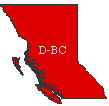Citizen Hats
lol-i-wear-hats
Jr. Member
  
Posts: 680

|
 |
« on: November 06, 2014, 11:53:19 PM » |
|
The main problem I see with the US political system (and I did live there for decades and grew up in it's environment) is that the founders went too far in distributing power. This has only carried forward as time has passed, with states adopting even greater distributed power systems than the Federal Government.
The problem with this is that the distribution of power also considerably distributes responsibility and thus accountability. The buck can always be passed to some abstract combination or another that has sabotaged the public interest. Thus, so many officials can make a plausible case that they are not really responsible for the result of their actions, that electoral accountability becomes not simply a question of 'was there a screw-up' but 'who in particular was the real screw-up'.
As a result of this diffusion of accountability, there results a sort of 'anything-goes' political culture, where the only real rules are in the form enacted legislation, if that, and political actors do not form unwritten codes of behavior because politicians know the voters can't really punish them for breaking them. So we end up with highly partisan judicial appointments, political motivated constituency boundaries, attacks on the electoral process, and all sorts of smaller corruptions that can only live in the distributed-responsibility system that we have -- things that in countries of a similar level of development are at the very least unseemly, if not things you just don't do. Lost in this mess of civil servants, committee chairs, floor leaders, party bosses, presidents, congressmen, senators, filibusters, secret holds, confirmation hearings, and independent agencies, is the voter tasked with making sense of it all.
In a parliamentary system, by contrast, there is a direct line of accountability. The bureaucracy is responsible to the Cabinet who are responsible to the Prime Minister who is responsible to parliament who are responsible to the people. Regardless of actual fault, there is one direction of responsibility for the success or failure of national policy, and elected officials act accordingly. Now, it is true that this tends to concentrate truly vast amounts of power in the hands of the Prime Minister, but that power is continuously validated by the continuous approval, or absence of active disapproval, of a body of individuals responsible to the people. This is in contrast to the practice of assigning power to an individual for a fixed and immovable period of time as found in the United States.
In the early history of the Republic, these tendencies were mitigated by an electoral system that depended on vast feats of coordination to achieve something resembling a governing coalition, and tended to create an environment where all members of a party stood or fell on their collective accomplishments, rather than individual roles. This is because, until the 1880s, elections were conducted by citizens lining up and informing tellers which people they wished to vote for what offices. In those days, "ballots" were privately printed by the parties, and were consisted of lists of approved candidates and ballot measures which could be handed to the teller. In order to split a ticket, one had to go through the process of manipulating several ballots or memorizing who was running for office. The effects of this system were that party candidates could not run as individuals, but had to run as a common organization and resulted in more disciplined political parties. Combined with a presidency which was dependent on the support of party barons for nomination and prevented from wielding real command authority by the administrative burden of filling tens of public service positions, meant that the political structure of the 19th Century United States featured considerably more defined paths of accountability than today.
If I were re-working the structure of the United States Federal Government, I would necessarily want to maintain many features of the existing system, simply for the reason that Americans are deeply attached to it, but I would alter several key things. Firstly, I would abolish the Senate. The Senate's imbalanced distribution is deeply unfair, and their few numbers create a club of powerful barons who distribute power too widely. I would lengthen the term of the House of Representatives to four years, to match the term of the president so that they are elected by a common electorate and to give the body enough time to live through the effects of it's enactments. If I were to retain the legislative approval of executive officials, it would be on a continuing basis so that the legislature could vote to remove as well as approve. Such a system would have a considerably simplified power structure, but it would also be considerably more simple for citizens to hold their servants to account.
|

